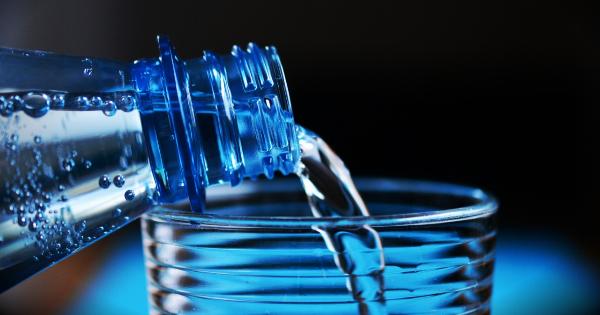Dehydration occurs when the body doesn’t have enough fluids to function properly. It can be caused by excessive sweating, not drinking enough fluids, or as a result of certain medical conditions.
Dehydration can occur in anyone, but it is especially dangerous for children and the elderly.
Signs of Dehydration
The symptoms of dehydration can vary depending on the severity of the condition. Here are some common signs of dehydration:.
Dry Mouth and Throat
A dry mouth and throat are one of the first signs of dehydration. When you are dehydrated, your body doesn’t have enough fluids to produce mucus and saliva. This can make your throat feel dry, scratchy, and uncomfortable.
Dark Urine
A healthy person’s urine should be a light yellow color. However, when you are dehydrated, your urine becomes darker. In severe cases of dehydration, the urine can become a deep amber or brown color.
Dizziness
Dizziness can be a symptom of dehydration. When you don’t get enough fluids, your blood pressure drops, and this can cause dizziness or lightheadedness. You may feel unsteady on your feet, or have trouble standing up straight.
Headache
A headache is a common symptom of dehydration. When you don’t drink enough fluids, the brain tissue loses water and can shrink. This causes the brain to pull away from the skull, which triggers pain and headaches.
Dry Skin
Dehydration can also affect your skin. When you are dehydrated, your skin becomes dry and tight. Your skin may feel rough or flaky, and you may notice that your lips are dry and cracked.
Tiredness and Fatigue
When you are dehydrated, you may feel tired and fatigued. This is because your body doesn’t have the fluids it needs to carry out its basic functions. Your muscles may feel weak, and you may have trouble concentrating.
Chest and Abdominal Pain
In rare cases of severe dehydration, you may experience chest or abdominal pain. This is because dehydration can cause your electrolytes to become imbalanced, which can lead to heart or lung problems.
Rapid Heartbeat
Dehydration can cause your heart to beat faster than normal. This is because your body is trying to compensate for the lack of fluids in the blood vessels. A rapid heartbeat can be a sign of severe dehydration and requires immediate medical attention.
Confusion and Fainting
Severe dehydration can cause confusion and fainting. This is because the lack of fluids can cause the blood pressure to drop, which can deprive the brain of the oxygen it needs to function properly.
If someone is feeling confused or has fainted, seek medical attention immediately.
Conclusion
Dehydration can be a serious medical condition that requires prompt attention. If you are experiencing any of these symptoms, make sure to drink plenty of fluids. If the symptoms persist or worsen, seek medical attention immediately.





























